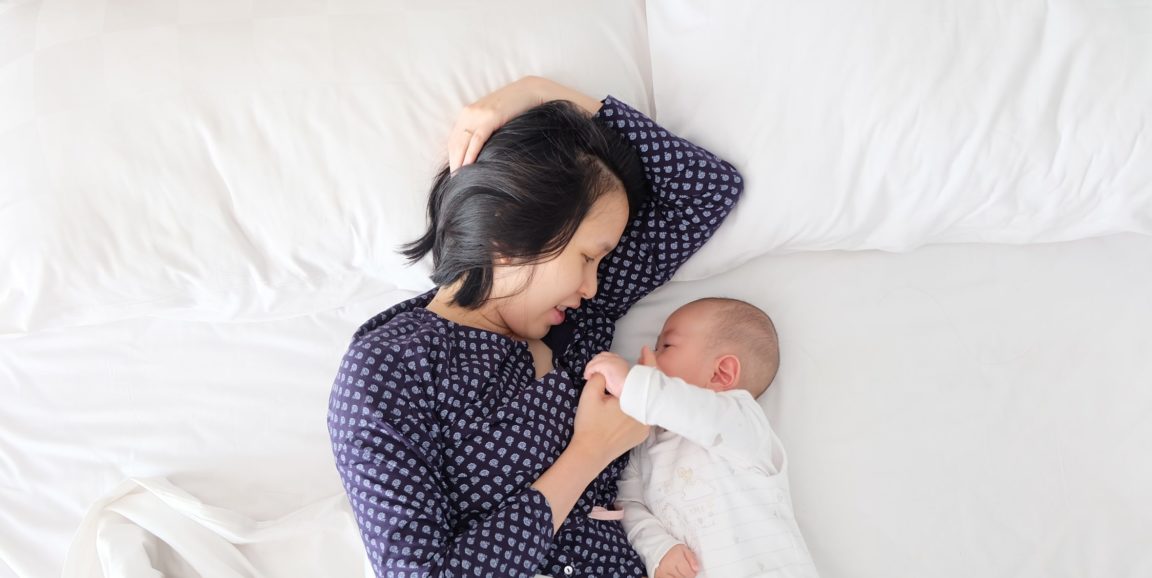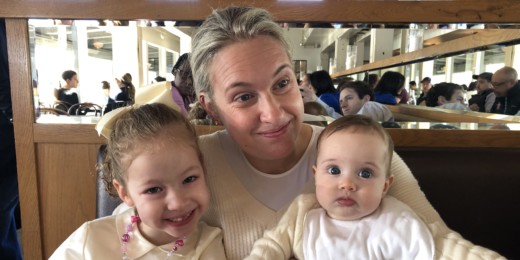Psychiatrist Amy Alexander, MD, sees a number of women at her practice who struggle with their mental health after they've given birth.
Challenges associated with healing from a birth, learning to care for an infant, and managing infections and other complications with breastfeeding -- all on very little sleep -- can cause formerly healthy women to develop depression or even thoughts of suicide. And women with a history of mental health problems face an even higher risk of postpartum depression.
"Right after having the baby is a high-risk period, psychiatrically," said Alexander, a clinical assistant professor of psychiatry and behavioral sciences at Stanford Medicine. "There's a risk of postpartum depression, and it's also just a really high-stress time."
In search of a better way to help, Alexander discussed the issue with other psychiatrists at a meeting of the American Psychiatric Association. Noting that just 16% of American workers employed in private industry have access to paid parental leave through their workplace, they theorized that 12 weeks of paid maternity leave for all working mothers in the United States could improve both the mental and physical health of many women.
Their hypothesis: Paid leave could give women's bodies time to heal, remove work stress during an already difficult time and alleviate some of the financial pressures of a new baby.
They decided to investigate. The team compiled results from 26 studies comparing various mental and physical health outcomes for women and children, after the mothers took different amounts of paid or unpaid maternity leave. Their research was published in The Harvard Review of Psychiatry.
Among other findings, Alexander and her collaborators found that longer paid maternity leave was associated with:
- Lower rates of postpartum depression and lower rates of depression later in life.
- A lower likelihood of reporting intimate partner violence in their baby's first year.
- For mothers who chose to breastfeed, higher rates of breastfeeding, and breastfeeding that continued for twice as long.
- Improved bonding, with mothers showing greater sensitivity and connection with their child.
- A lower likelihood of the mother or child returning to the hospital with medical complications in the first year.
- Babies who were more likely to have well-child visits and timely vaccinations.
Longer paid maternal leave also correlated with economic benefits for mothers that can be helpful for society, according to the analysis. For example, in the year following birth of a child, women who took paid leave were more likely to return to work and to see a wage increase, and they were less likely to rely on public assistance and food stamps.
On the flip side, some studies have shown less positive effects, such as encouragement of employer bias against women of childbearing age in lower-paying or part-time jobs.
Ultimately, Alexander and her co-authors contend that a longer period of paid leave gives mothers the time and space to bond with their child and to attend to their own mental and physical health needs.
"Our review shows that there is a lot of data that supports the institution of a 12-week national paid maternity leave policy in the U.S.," Alexander said.
Photo by Kevin Liang






